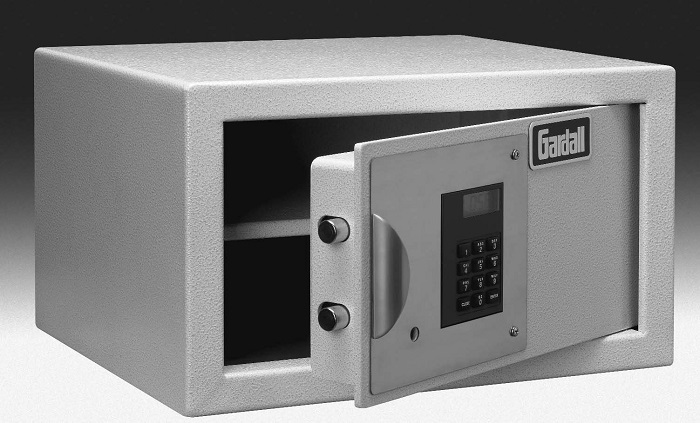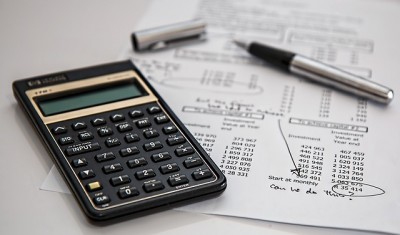
There’s many things that people miss when preparing for the unknown – be it a natural or man-made disaster. But one that always surprises me is when people forget to add a safe to their list.
Perhaps our oversight is due to thinking in the terms of major disasters, rather than personal ones. But even then, a safe has its place. If your home is destroyed by an earthquake or tornado, the items in your safe would probably survive. We can’t be so sure about the rest of your stockpile.
For you, a personal disaster can be as serious a problem as a regional or national one. Ignoring this fact could lead to unnecessary suffering for you and your family. Imagine, for example, that your home is lost to a fire. This likely will be as much a disaster for you as if a hurricane hits – perhaps even more so since a hurricane might just damage, not completely destroy, your home.
Safes are rather robust structures, designed to be able to withstand a lot of abuse. In addition, most home safes are fireproof to a certain temperature or for a certain amount of time. So anything you store in a safe is likely to survive whatever happens, as long as you can still find the safe.
Home safes aren’t all that big, so you’re better off buying the largest one you can find. With a large part of the space taken up by the thickness of the walls, the interior is much smaller than the exterior. Once you start putting things in it, you’ll quickly discover how small it actually is.
Emergency Survival Seed Bank Provides THOUSANDS Of Pounds Of Food
So, what should you keep in your safe? While it would be nice to be able to put your entire stockpile in there, that just isn’t going to happen. Instead, you’ll need to carefully select key items.
1. Important documents

Generally speaking, the most important thing to keep in your safe is the documentation that makes up the legal part of all of our lives. That documentation will be a key part of being able to rebuild your life after many types of personal or community-wide disasters. In our modern world, if you don’t have the paperwork, it doesn’t matter if you own the item or not. Some documents you should store in your safe are:
- Home and property titles
- Vehicle titles
- Marriage license
- Birth certificates
- Copies of degrees and other awards
- Military discharge papers
- Insurance policies
More than anything, these documents are being stored in the safe to protect them from fire. If you have some other fireproof place in your home to save documents, you may want to move them there and keep the safe for other items.
2. Account numbers and access
Many people have multiple accounts in multiple places rather than just one bank account. If something happens to you, your family is going to need to know where those accounts are and how to get into them. A list of all account numbers that you have, along with access codes, bank names, and other key information needs to be in the safe.
Of course, for your family to be able to use this information, they’re going to need to be able to get into the safe. Make sure that they either have or can access the combination or are input into the biometric lock.
3. Contact information
With everyone using cell phones, nobody bothers memorizing phone numbers anymore. But in the wake of a crisis, it may be necessary to get in touch with a lot of key people in your life. What are you going to do if your phone is destroyed or lost in a crisis? Keeping a contact list in the safe ensures that you will always have this information, no matter what happens.
4. Computer backups
The best place to keep your computer back-ups is offsite somewhere. Many people keep theirs in the cloud now. But if you have to keep your data files onsite for some reason, the best place for them is in your safe. Copy the data on a removable hard drive and store it in the safe. That way, it’s protected from fire. Better yet, print it out.
4-Ounce Solar Survival Lantern Never Needs Batteries!
This is especially important if you run a business out of your home. All your records are probably on your computer. Proper storage of your data is a critical part of maintaining your business.
5. Cash

It’s always a good idea to keep as much cash on-hand as possible. In the wake of a disaster when the power is out, the money you have in the bank is inaccessible. You will surely need money to buy things and make repairs to your home. Having cash allows you to start immediately, while everyone else is arguing with the bank to get access to their money.
6. Gold and silver
If you are investing in gold and silver – an excellent idea considering the state of the economy, in my opinion – then store it in your safe. That’s probably the safest place you can store it, and will ensure that your investment is available in a crisis scenario.
One nice thing about gold and silver in your safe is that even if dollars become worthless, these precious metals will likely retain their value. In fact, in such a situation their value might increase.
7. Handgun and ammo
Keeping a handgun in your safe spurs images of fighting off a robber that is forcing you to open up your safe. But that’s really not the reason that I’m recommending it. The main reason is to have at least one gun in your home, which is protected from damage. Ammunition and firearms can be damaged in a fire, leaving you suddenly unarmed and unable to protect yourself and what’s left of your home.
That one handgun in the safe will survive a fire or just about any other disaster. And you’ll have something you can use to protect yourself, your family and your belongings.
8. Survival kit
This one may sound a bit odd, as it is not considered an item of high value. But if you lose everything else, having a survival kit will give you the basics you need to get clean drinking water, start a fire and otherwise take care of yourself. This doesn’t need to be a huge kit, but make sure you at least have the basics. That way, you won’t have to scrounge around looking for them.
What would you add to this list? Share your tips in the section below:
Learn Dozens Of All-Natural Gardening Secrets. Read More Here.








